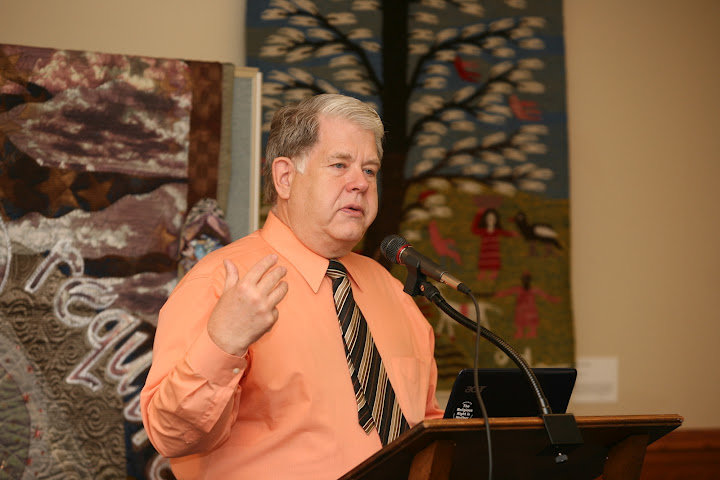NEBRASKA, March 5, 2019 (LifeSiteNews) – Late-term abortionist LeRoy Carhart broke a decade of silence to condemn the Born-Alive Abortion Survivors Protection Act, saying that the bill’s sponsor – fellow Nebraskan Sen. Ben Sasse – is “ignorant and doesn't understand what he is talking about, or even worse, he's lying.”
This was Carhart’s first television interview in nearly ten years.
Carhart opened his first abortion facility in Nebraska before opening a second one in Maryland in 2011 following the Cornhusker State’s outlawing of abortions after 20 weeks. Maryland’s abortion restrictions remain far less restrictive than Nebraska’s. In the Supreme Court case Gonzales v. Carhart, he fought against the Partial-Birth Abortion Ban, which was ultimately upheld.
“I don’t care what her reasons are, if she knows it’s what she needs to do,” Carhart told KETV Newswatch 7 of his willingness to commit abortions.
Carhart’s statement may be an admission of his willingness to disregard the law and commit late-term abortions illegally, since Maryland law requires a compelling justification for the gruesome procedure after a child has been deemed to have reached viability at 28 weeks.
Carhart employs the term “advanced gestation” as a type of medical condition in order to avoid recognizing the humanity of children beyond 20 weeks in utero.
“I think it’s cruel and inhumane to make a woman stay pregnant with a baby that she knows won’t survive birth,” said Carhart in the KETV interview, even though this is rarely the rationale for late-term abortions.
In a 2016 lecture at Johns Hopkins University, Carhart contradicted himself, at first saying he only commits abortions when the mother’s life is in danger physically or psychologically, but then later admitted he will provide an abortion to anyone who has decided that “that’s what they need” – a sentiment he echoed in his recent TV interview.
Live Action cites research demonstrating that late-term abortions are hardly ever performed because of a baby’s or mother’s health condition:
According to a 1988 Guttmacher study, only 2% of women seek late-term abortions because there is a health problem with the baby. In addition, a 2013 study published by the Guttmacher Institute states, “data suggest that most women seeking later terminations are not doing so for reasons of fetal anomaly or life endangerment.” Pro-abortion researcher Diana Greene Foster has stated, according to a report from the Congressional Research Service, that abortions for fetal abnormalities “make up a small minority of later abortion.” And a 2010 paper from Julia Steinberg with the pro-abortion Bixby Center for Global Health states, “Research suggests that the overwhelming majority of women having later abortions do so for reasons other than fetal anomaly (Drey et al., 2006; Finer et al., 2005, 2006; Foster et al., 2008).”
Carhart’s surprise interview is an eruption, lashing out Sen. Sasse and the anti-infanticide legislation he introduced.
“Infanticide is what the Born-Alive Abortion Survivors Protection Act is actually about,” explained Sasse in a stirring speech delivered from the floor of the U.S. Senate last week.
“Are we a country that protects babies that are alive, born outside the womb after having survived a botched abortion?” he asked. “Are we a country that says it’s okay to actively allow that baby to die, which is the current position of federal law?”
Sasse continued:
We know that some babies, especially late in gestation, survive attempted abortions. We know, too, that some of these babies are left to die. Left to die. No federal protections exist today to shield them from this ugly fate.
The Born-Alive Abortion Survivors Protection Act is right trying to right this obvious wrong. The bill's terms are simple. A child born alive during a botched abortion would be given the same level of care that would be provided to any other baby born at that same gestational stage. That's it.
This bill isn't about abortion. I’m pro-life. I’m unapologetically pro-life. But this bill is not actually about anything that limits abortion.
This bill doesn't have anything to do with Roe v. Wade. This bill is about something else. What it bill does is try to secure basic rights, equal rights for babies that are born and are outside the womb.
Despite Sen. Sasse’s impassioned pleas – and those of fellow Republicans – the bill failed to reach the necessary 60 votes for passage into law.
By coming out of his self-imposed silence, Carhart has shown the stark contrast between his extreme pro-abortion views, which would allow children born alive during failed abortions to be left to die, and Sen. Sasse’s pro-life stance, which recognizes the humanity of these children and their right to life.

